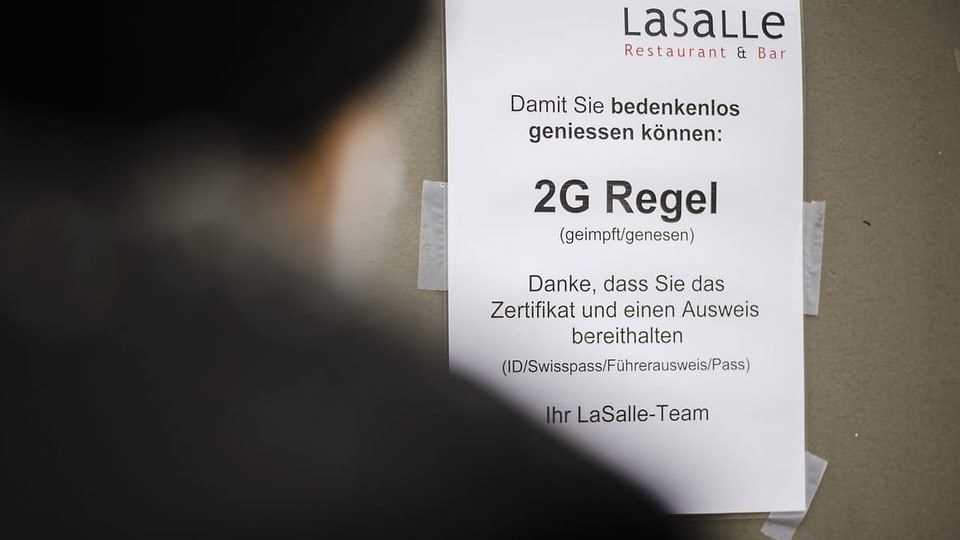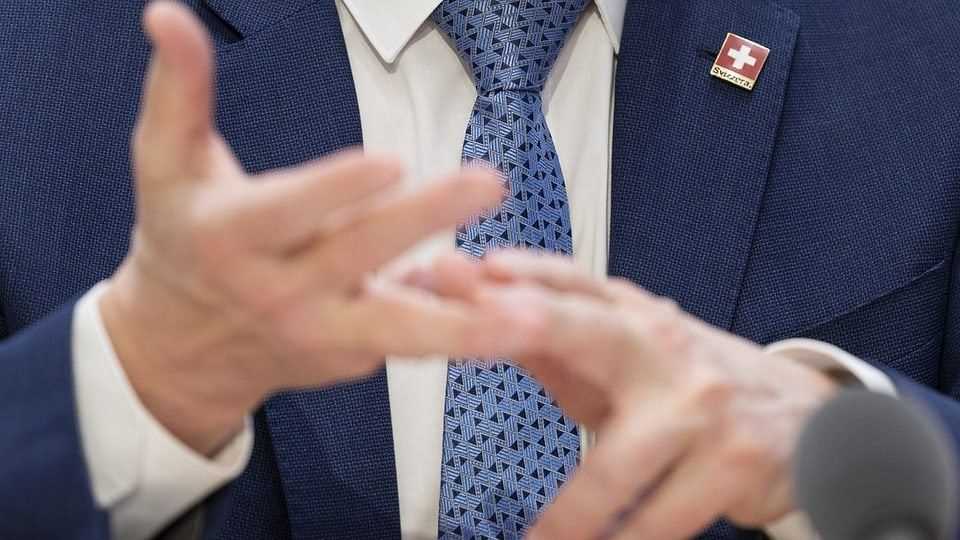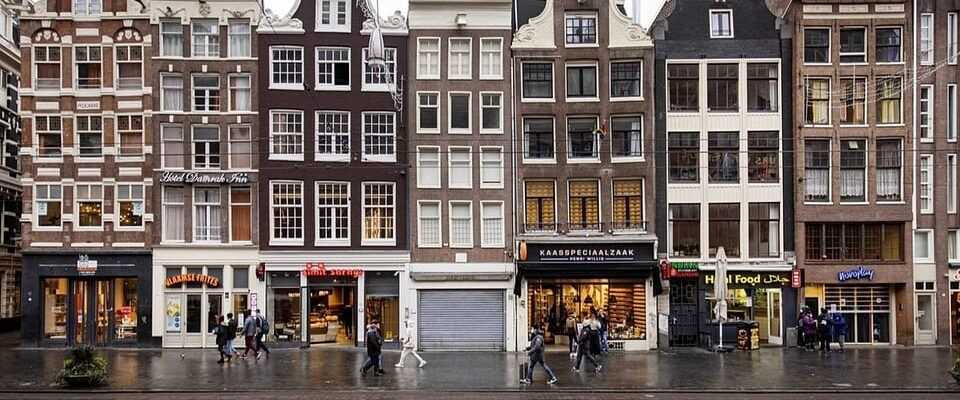contents
Is 2G legitimate, is there a de facto compulsory vaccination, and where will it all end? Answers from the political philosopher Francis Cheneval.
The pandemic is soon entering its third year. And the ghostly images from the Chinese metropolis of Wuhan with deserted streets, which at first seemed so strange to us, are repeated anew – in the middle of Europe. In addition to the draconian measure of lockdown, a finely balanced bundle of regulations has been added: 3G, 2G, 2G + make participation in social life dependent on the vaccination status and / or negative tests.
Legend:
Amsterdam is locked down again. Even in our latitudes, the measure has become the last resort when it comes to containing the pandemic.
Keystone
In the pandemic, the state deprives citizens of their personal freedoms. Critics warn that it could stay that way. At the beginning of the pandemic, the political philosopher Francis Cheneval saw no signs that the state could permanently deprive its citizens of their freedoms.
And today? For Cheneval, the character of the pandemic has changed in advance. “The pandemic hit us fatefully at the beginning, the solidarity of the population was great – as was the political authority of the Federal Council.”
The currently applicable rules allow freedom and are therefore the better alternative to total closure.
The longer the pandemic lasts, the more the question of guilt comes to the fore, says the professor at the University of Zurich. “There is tension around the question of who is responsible for this and who should pay what costs.”
With a view to restrictions on freedom such as 2G, the philosopher asks about the alternative: «Should that be the cancellation of football games or the closure of restaurants? In this respect, the currently applicable rules allow freedom and are therefore the better alternative. ”

Legend:
It is currently not possible to visit a restaurant without an ID and certificate. Will the state keep control of our lives once the pandemic is over?
Keystone
Nonetheless: ID checks when you go to a restaurant seem strange in a liberal state. A question of trust, says Cheneval – comparable to paying with a credit card or sharing our health data. “The fundamental challenge is always to guarantee the legitimacy of this system.”
In other words, as long as citizens see the certificate requirement as a legitimate tool for fighting pandemics, they accept restrictions on personal freedom. For the philosopher, the alarm bells ring when “the proportionality between the measures and the emergency is no longer given.”
We get offers in the supermarket, recommendations from science: The government is expected to prompt citizens in an emergency with clear words to act in a certain way.
There is no sharp dividing line here. But as long as the health system is under such strain, we are in the middle of the exceptional situation of the pandemic – and the measures are proportionate. Cheneval draws the red line for “permanent measures without a scientific basis.”

Legend:
The Federal Council is talking too much about the word “mandatory vaccination” as if it were a hot potato, says Cheneval.
Keystone
Even if the Federal Council leaves appeals to be vaccinated, the pressure on unvaccinated people is drastically increased by 2G and the extensive exclusion from social life. So much so that one can already speak of an indirect vaccination requirement?
It is important to distinguish between terms such as “vaccination offer”, “vaccination recommendation”, “mandatory vaccination” or “mandatory vaccination”, says the philosopher. “A government is certainly also resorting to 2G with a view to increasing the vaccination quota – it is an incentive system.”
Ultimately, one can discuss whether vaccination is an informal political duty like many others that uphold democracy in Switzerland, concludes Cheneval. The Federal Council could also take the scepter in hand: “We get offers in the supermarket, recommendations from science: The government is expected to ask citizens in an emergency with clear words to act in a certain way.”
